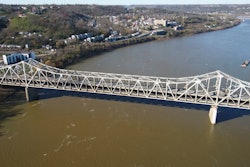
Construction is an exciting industry that brings dreams to life, where buildings and bridges rise from simple blueprints and specifications into phenomenal structures. It's a world full of hammers pounding, saws buzzing, and the sense of accomplishment that comes with creating something that brings communities together.
However, despite all the excitement, owning a construction business can also be risky. From unexpected delays to fluctuating material costs, challenges can arise that threaten a company's financial stability. A healthy cash flow is essential in paying bills and sustaining your operations.
It's crucial for a contractor to remember the importance of having more cash at hand than what is spent. This is the lifeline of any contracting business. Cash allows contractors to pay for materials, pay their workers, and cover other necessary expenses. By keeping a healthy amount of cash available, contractors can ensure smooth operations, fulfill their financial obligations, and take advantage of opportunities for growth.
Below are some tips on how to maintain a healthy cash flow in your company and projects.
1) Increase the productivity of your workforce. Increase the productivity of your project teams by having effective communication channels. This includes morning huddles with clear direction on daily productions. Each team member needs to clearly understand their responsibility on the project with clearly defined roles. Expected productions need to be clearly relayed to all field personnel so they know exactly what’s expected of them. By clearly defining roles to your
management, productions required, and why they need to perform these tasks, they will hold themselves accountable. Companies should also always be implementing training. A more productive team can complete projects more quickly, leading to improved cash flow.
2) Have a full understanding of cost management and decrease waste. The construction world is very fast-paced which can lead to a lot of areas of the project being overlooked. Some examples are, waste caused by over-purchasing of materials, rework, scope creep, waiting delays, materials not strategically placed on site, and using the wrong people for the wrong tasks. In addition to tracking production costs and having real-time data, you should consider having someone from management constantly monitor the above waste examples so you can have maximum flow on your projects which will increase profits and cash flow.
3) Avoid underbilling by tracking quantities correctly. Understanding how you will get paid monthly is crucial for cash flow. Breaking down and accepting payment terms for a lump sum project should be carefully thought out. Understanding the full scope of work and schedule is crucial in this initial process for lump sum projects. In addition, tracking quantities for unit price contracts, typical on public work projects, should be carefully done by trusted and trained field engineers. They need to fully understand the importance of getting inspectors or owner representatives to agree to these quantities each month, so monthly payment requisitions don’t lag.
4) Consider financing options such as lines of credit or business loans to bridge any cash flow gaps. Use these funds strategically to support operations and maintain smooth cash flow during slower periods. Today we have multiple private lending companies dedicated to working with contractors. They have proven cash flow tracking tools. They can be a great addition to your financing solutions.
5) Improving the efficiency and streamlining of your accounts receivable process is crucial for optimizing cash flow. Implement clear payment terms, send invoices promptly, and follow up on overdue payments consistently. Offering incentives for early payments or implementing an online payment system can also expedite cash collection.
6) Lastly, diversify your portfolio. Relying on a limited number of clients in one construction sector can create cash flow volatility, especially when the economy is in a downturn. The commercial and residential sectors are typically private money, while public works are taxpayer money. When the economy has a downturn or a recession hits, private money investing slows. However, the feds pump money into the economy through infrastructure spending. By diversifying your client base, you can reduce the risk of revenue fluctuations. Invest in marketing and networking to attract new clients and expand your business. Building strong relationships with repeat clients can also provide a steady stream of work and reliable cash flow.
Remember, each contractor's situation is unique, so it's important to assess your specific circumstances and tailor these strategies to your business. Without enough cash, a contracting business may struggle to stay afloat and face challenges in completing projects and maintaining a stable foundation. So, remember, having more cash than you spend is the key to success in the contracting world.
For over 20 years, Jerry Aliberti, principal of Pro-Accel, has helped some of NYC’s largest contractors, and others around the country to improve communication, delegation, and processes to successfully build over $300 MM in infrastructure and has estimated over $9 billion in projects, helping these contractors to increase margins and reduce risk. Jerry helps contractors create repeatable project success and profitability by improving their estimating and field operations, reducing overhead, and helping them build high-performing teams.











